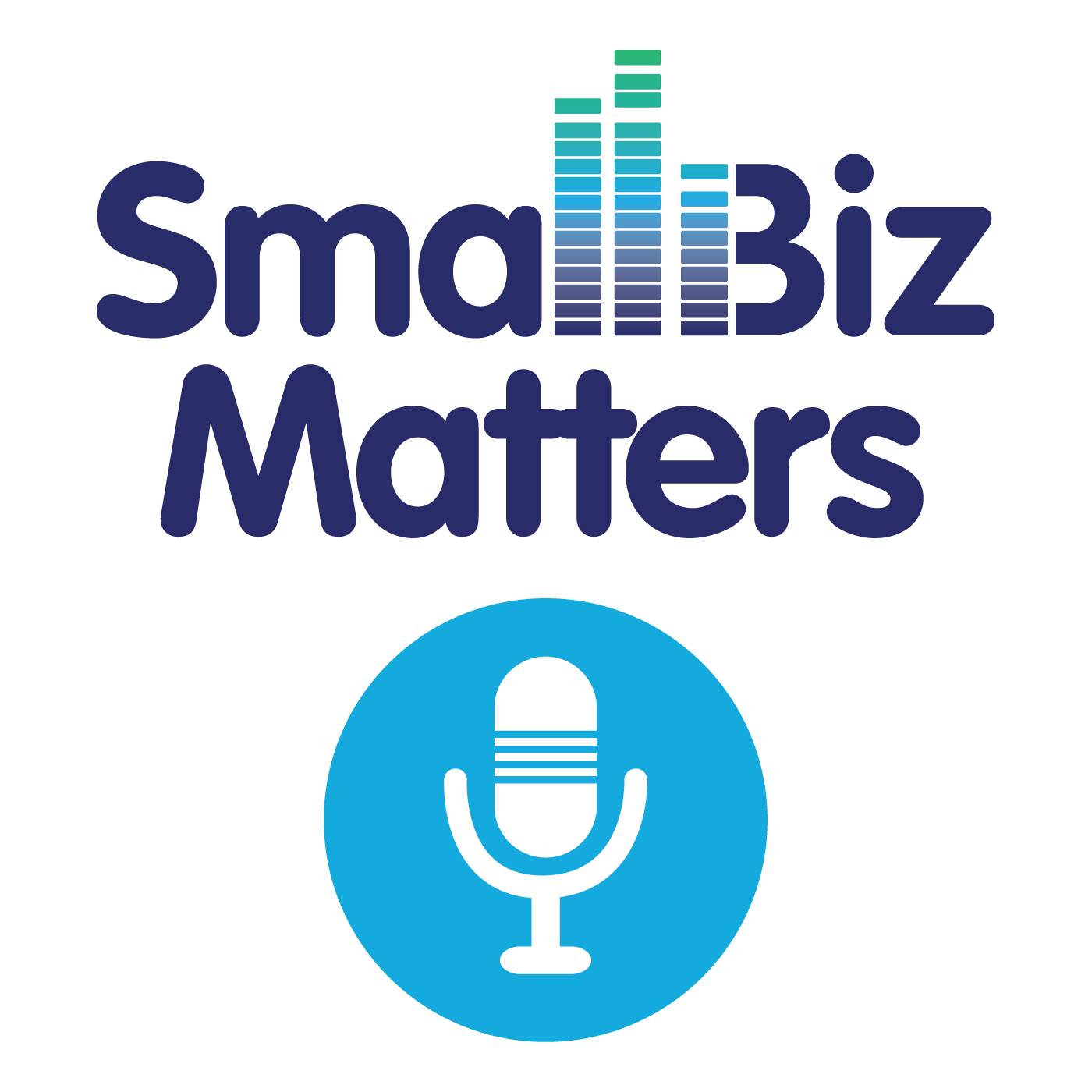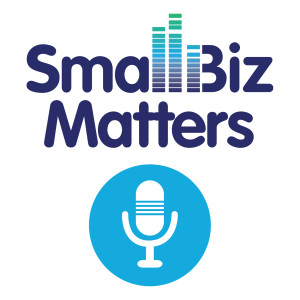
27.3K
Downloads
258
Episodes
The new Small Biz Matters program is all about People, Policy, Purpose. It is conversational and chatty and dedicated to empowering small businesses and their advisors to engage with policy and advocacy. Why? Because what Government does very much Matters to all Small Biz. Good and bad. A labour of love, in 2014 Alexi Boyd started broadcasting to give back to the local small business community. She knew information and support was lacking. Now with over 220 podcasts, the show is sought by PR Agencies and Government departments for its rich, informative content. Media Partners include universities, the Australian Tax Office, ASBFEO, COSBOA and international fintechs. Sponsored by the Australian Small Business and Family Enterprise Ombudsman’s office, each week we sit down with experts, advocates, business leaders, policy makers and politicians to dive into specific areas of government policy that affects your business and clients. We’ll give you a heads up on what’s coming down the policy pipeline, find out who’s fighting in your corner and empower you with ways you can influence those decisions which affect your business every single day. The program is broadcast weekly on Tuesdays live on local community radio Triple H 100.1FM, through the Community Broadcasting network, and wherever you get your favourite podcasts.
Episodes

Tuesday Jul 07, 2020
The Accidental Pivoting Champion
Tuesday Jul 07, 2020
Tuesday Jul 07, 2020
Small Biz Matters – a half hour program each week where you can work ON your business rather than IN it.
with Alexi Boyd, broadcaster, advocate and small business owner.
Date: 7 July 2020
Whilst everyone interested in small business is trying to reinvent themselves through pivoting and adapting there’s one small business who is living it … and everyone is talking about their story. From the Prime Minister, to the media, to national advocates the story of StoryKings is reinvigorating our faith in the small business economy to dust themselves off and reinvent to success.
So how did StageKings do it? With amazing speed and efficiency actually. They saw an opportunity and grabbed it with two hands, hung on to their employees, and collaborated with other small businesses who supported them.
StageKings are as passionate about small business as the rest of us and we’re proud to welcome Jeremy Fleming, the CEO to share the story of their overnight (haha) pivot success and help out other small businesses to learn from their journey.
Welcome to the show Jeremy.
Topics we’ll be covering:
- What gave you the idea to produce remote working office furniture when your company sits squarely in the events industry?
- Did you draw on your own experiences or your staff’s skills to meet the need?
- How did that conversation develop with your staff?
- After trying other ideas like pop up testing facilities and temporary waiting rooms, it was a discussions with a friend in Ireland with a similar company to mine that sparked the idea. He discussed their plan to start making furniture, and suggested that we had the same machinery and know-how, and that we should look at doing similar. We’d seen that other desk suppliers were out of stock and, relying on deliveries from China, they likely would be for some time. So our Head of Production, Mick Jessop, and I decided that work from home desks was the idea to run with. With a history of design, and a furniture building hobby, Mick ran with the idea, and overnight had 2 designs ready for production.
- You had the idea, what steps did you take to get it up off the ground? What did you do first and then later, how did you recognise and chase the organic growth?
- We moved very quickly with the idea that we had at 11am on Sunday morning, to having prototypes build on Monday, the eCommerce site written overnight on Monday night, a photo shoot on Tuesday morning, and on sale 3pm on Tuesday afternoon. I started with an open letter that I posted on Facebook, Instagram and LinkedIn, which focuses solely on our story, and what we planned to do to keep our people in work. That post quickly went viral, and withing days had been seen, shared or liked by a million people. The organic growth is due largely to us focusing on our story, and not trying to sell a product. Of course it helps that the products go together very easily without tools, they look great, and are very functional, but the story is what got people interested.
- Did you know it would succeed in those beginning days or were you really throwing your business and all its resources at a possibility
- We worked on the idea not realising how big it would actually get. We thought it would keep some of our crew working, and that Mick and I would do the sanding, and deliver to people on our way home. We thought we might sell 100 desks in a month. We quickly realised that it was going to be bigger than that, when on our first weekend we were featured in multiple newspapers, and on the TV news. Within 3 days of starting we were taking 200 orders per day, and needed to bring back a bigger crew than we had when Covid hit. We now have over 50 crew working, made up of out of work event industry workers.
- What advice would you give to small businesses out there who are fearful of the risks associated with Pivoting?
- It starts by being agile by nature. As a staging company, nothing we ever do is ever exactly the same, so we really pivot the way we work frequently. One day we could be building a replica of Shakespeare’s Globe Theatre, and the next week we could be building a 26m tall lion as the centre piece of a stage (which actually happened last year). We looked at the furniture as another project, and looked at what we needed to do to make that work. Outside of that the biggest thing for me was to move quickly. Don’t over analyse. If getting started is not going to put a huge strain on finances, and you have the equipment to get going, do it, and learn along the way. We didn’t get a lot of things right when we started this, but had we procrastinated for another week, we would not have had the same reaction, and we wouldn’t have done near as well as we’re doing now.
- Has this experience changed your core business forever or simply split you into two niches? How can a small business recognise when it’s NOT working?
- Has it re-invigorated your staff
- How will it change your outlook? What lessons have you learned from this side business that crosses over to your core business?
- We will still build stages again once the live event industry opens up, but we will also continue to manufacture furniture, likely as a separate company. With the focus returning strongly to Australian Made, and Shopping Local, I see a very good opportunity to grown our product range, and partner with other designers to grow that part of the business
Recognising when a small business isn’t working can be difficult if you’re embedded in that business day in, day out. It often takes removing yourself (emotionally and sometimes physically), to take a look from the outside. This allows you to scrutinise things that appear to be working, but maybe not well enough, and consider a better way.
To find out more go to their website: https://www.stagekings.com.au/
About our Guest:
“Jeremy Fleming is the Managing Director of Stagekings, the company responsible for some of the most well-known temporary event structures of the past 5 years. Building stages and sets like the Opening Ceremony at the Gold Coast Commonwealth Games, the set for Ninja Warrior, the replica Edinburgh Castle at the Edinburgh Military Tattoo in Sydney, Shakespeare’s Pop up Globe Theatre in Melbourne, Sydney and Perth, Ultra Music Festival, and the Adelaide 500 Concert Stage.
Jeremy is currently navigating Stagekings through the most difficult time the event industry has experienced, since the outbreak of Covid-19. Seeing a chink in the supply chain he has pivoted the staging business to manufacture work from home office furniture, and now return to work office furniture to fill the gap in the market, and to keep Stagekings in business. By doing this he has reemployed staff, as well as employing many more out of work event crew to help in the manufacturing of the IsoKing desk range. On top of this over the past 3 months Stagekings has raised over $41,000 for Support Act – the Heart and Hand of Australian Music, through the sales of the desks.”

No comments yet. Be the first to say something!